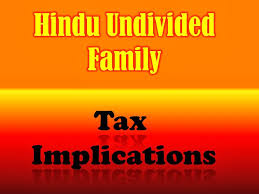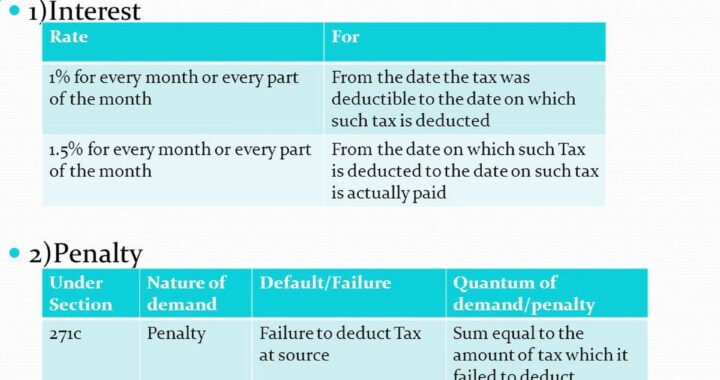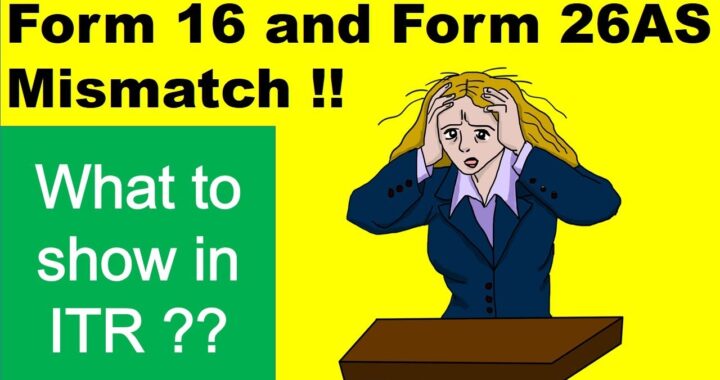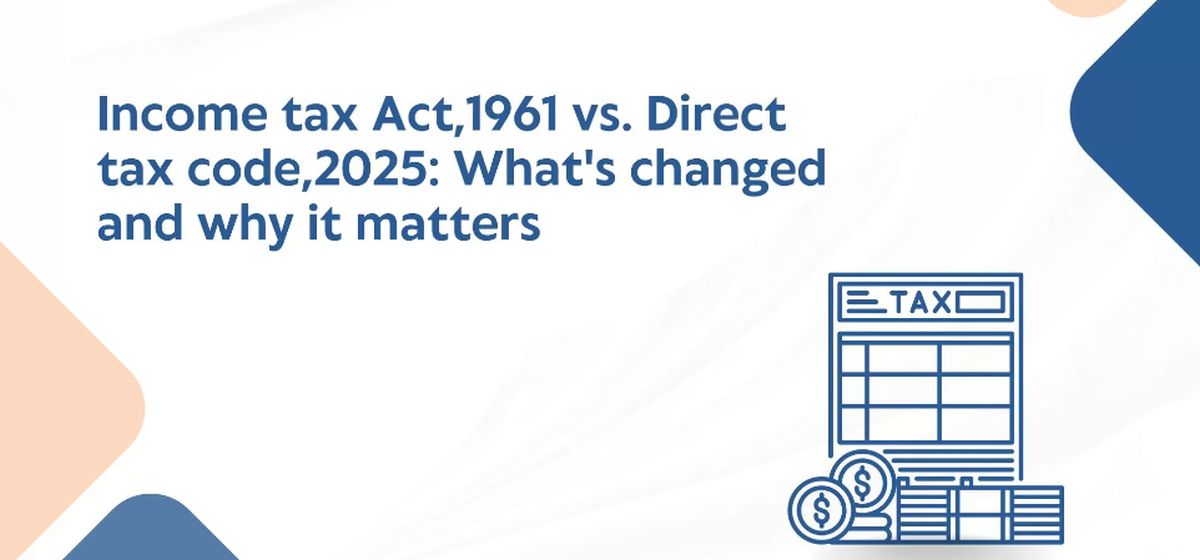Can forming a HUF help in saving taxes?
 A Hindu Joint Family or a HUF gives specific advantages regarding taxation. The Income Tax Act and the Wealth Tax Act recognize HUF as an independent entity which is liable to pay tax. HUFs enjoy all deductions under the Income Tax Act independent of the income of its members.
A Hindu Joint Family or a HUF gives specific advantages regarding taxation. The Income Tax Act and the Wealth Tax Act recognize HUF as an independent entity which is liable to pay tax. HUFs enjoy all deductions under the Income Tax Act independent of the income of its members.
What is a HUF?
The Hindu Law defines a HUF as an extended family arrangement of the Hindus involving many generations residing under a single roof. All the male members of a HUF are blood relatives and the women are mothers or unmarried daughters, etc. of the male members where all are connected by a common relationship. A Hindu Undivided Family is a joint one whose religious duties are controlled by a regulation. The family is headed by the oldest male member who takes all major decisions on economic and social issues and controls all religious matters.
The capital of an HUF is separate from the assets owned by the members of the HUF. A property received by an HUF through a will in its favour can become its capital.
An HUF should have a separate PAN and the karta must apply for it. The PAN has to be quoted at the time of making investments and while making financial transactions on behalf of the HUF.
How to save tax by forming a HUF?
All individuals are interested in saving taxes. Tax can be saved by taking advantage of the provisions contained in the Income Tax Laws. If one can avail the deductions and exemptions contained in the provisions of the Income Tax Act, 1961, then he can save sufficient amount of income tax for his family.
The formation of a Hindu Undivided Family can help the tax payers to save their income taxes legally. It is known to all that every adult member of the family can enjoy a tax deduction up to Rs. 1, 00,000/- as per section 80C of the Income Tax Act, 1961. Apart from taking the complete advantage of section 80C of the Act, another tool of saving income tax is the creation of a separate tax entity in the name of Hindu Undivided Family.
Tax benefits enjoyed by HUFs:
If an HUF is formed by an individual, he can claim higher tax deduction and exemptions as per the Income tax Laws as the new tax entity is eligible to claim a separate tax deduction under section 80C of the Act. In the same manner, the income from dividend and the Long-term Capital Gains can also be exempted for such HUF. The income from Short-term Capital Gain will also be eligible to a lower tax rate of 15 %.
Many other tax benefits under the Income Tax Laws are available for the Hindu Undivided Family which helps in saving tax for an individual as the exemptions and deductions under the Income Tax Law can be separately availed by the Hindu Undivided Family.
How to make a HUF file?
A normal question which arises in the minds of a tax payer is how to form a HUF file. If you do not have a HUF file till today, you have to know how to make one. The answer is very simple. A new Hindu Undivided Family or an HUF can be started on any day.
To start a new HUF one has to receive a gift directly in the name of the Hindu Undivided Family from his near relations or from his friends or relatives. But one should avoid contributing his own money to the HUF by way of gift.
As per the Income Tax Law any gift received by a HUF from its members is not subjected to income tax according to section 56 of the Income Tax Act, 1961. One should also remember the provisions concerning section 64 of the Act which provide that if the member of the Hindu Undivided Family makes a gift to the HUF, the income arising to the HUF will be added with the income of the person making the gift to his own HUF. However, any member of the HUF you can give loan to his HUF. The gift received by HUF from non-relatives can enjoy a deduction up to Rs. 50,000/- per year.
If you receive a gift for your HUF, then you have to open a Bank Account in the name of your HUF and then start the activities of your HUF. Your HUF can engage itself in business and can also become a partner of the partnership firm. It can invest in the stock market and can even purchase Mutual Funds, etc. But one has to remember to obtain a separate Permanent Account Number (PAN) in the name of the HUF for which one is required to apply in Form No. 49A.
Special benefits available to HUFs:
An individual gets tax deductions on many types of investments as per section 80C of the Income Tax Act, 1961. Similarly, the Hindu Undivided Family also enjoys similar tax deductions under section 80C of the Act. To avail such tax deductions as per section 80C the HUF can maintain Life Insurance Policies in the name of its members and pay the premium which would help the HUF to claim tax deduction under section 80C of the Act.
To avail 80C deduction the HUF can also contribute to a PPF account though some banks do not allow the HUFs to open separate PPF account in their names. However the HUF can contribute to the PPF account of its members to avail tax deduction. It can also invest in Five Year Bank Fixed Deposit schemes.
An HUF can also claim a separate deduction towards the payment of Health Insurance Premium. This deduction is allowed under section 80D of the Income Tax Act, 1961. The maximum amount of deduction which is allowed is Rs. 15,000/- per year. If the HUF maintains a Medical Policy for its members who are senior citizens, then the maximum amount of deduction allowed will be Rs. 20,000/-.
The HUF can receive an additional tax deduction of Rs. 50,000/- towards the maintenance including medical treatment of a dependent member having a mental or physical disability. If there is a severe disability, then the deduction amount goes up to Rs. 1, 00,000/- as per section 80DD of the Income Tax Act, 1961.
If the HUF actually has expenses towards the medical treatment of a disease for its members specified in the Income Tax Act, then a deduction up to Rs. 40,000/- will be allowed according to the provisions of section 80DDB of the Act. In case of the maintenance of a member who is a senior citizen, the deduction allowed will be up to Rs. 60,000/-. An HUF can also donate to recognized charitable organizations and claim deduction under section 80G of the Act.
The HUF can also claim deduction for repayment of the interest of house loan for a self occupied house property up to Rs. 1, 50,000/- in a year according to section 24 of the Income Tax Act.
If an individual is a salaried employee who receives payment for house rent and if his HUF is the owner of the house, then it is possible for him to pay the rent to the HUF, get the rent receipt from the HUF and submit the same to his employer and get a tax deduction on the HRA from his employer. Thus for persons who receive HRA i.e. House Rent Allowance from their employer, it is worth making payment of rent to the HUF and claim deduction on his salary income by submitting the rent receipt along with the copy of PAN Card of the HUF.
If the HUF rents out its property to any person, from the rental income the HUF can avail deduction for the total interest on loan paid by the HUF towards the said house property.

 Can an assessee pay House Rent to his parents and claim relief? Would there be any legal complications?
Can an assessee pay House Rent to his parents and claim relief? Would there be any legal complications?  Boost Your Business & Reduce Taxes: A Guide to Maximizing Benefits Under Section 80JJAA
Boost Your Business & Reduce Taxes: A Guide to Maximizing Benefits Under Section 80JJAA  What is remedy to taxpayer if the Tax deductor fails to deposit the TDS or fails to file TDS Return
What is remedy to taxpayer if the Tax deductor fails to deposit the TDS or fails to file TDS Return  What is Income Tax Liability on Income from trading in Future and Options
What is Income Tax Liability on Income from trading in Future and Options  The Importance of Filing Your Income Tax Return on Time: A Financial Must-Do
The Importance of Filing Your Income Tax Return on Time: A Financial Must-Do  Is Addition made by Assessing officer on basis of mismatch between AIR and F26AS Justified
Is Addition made by Assessing officer on basis of mismatch between AIR and F26AS Justified  Major Changes Expected in Direct Tax Code 2025 and why these matter
Major Changes Expected in Direct Tax Code 2025 and why these matter